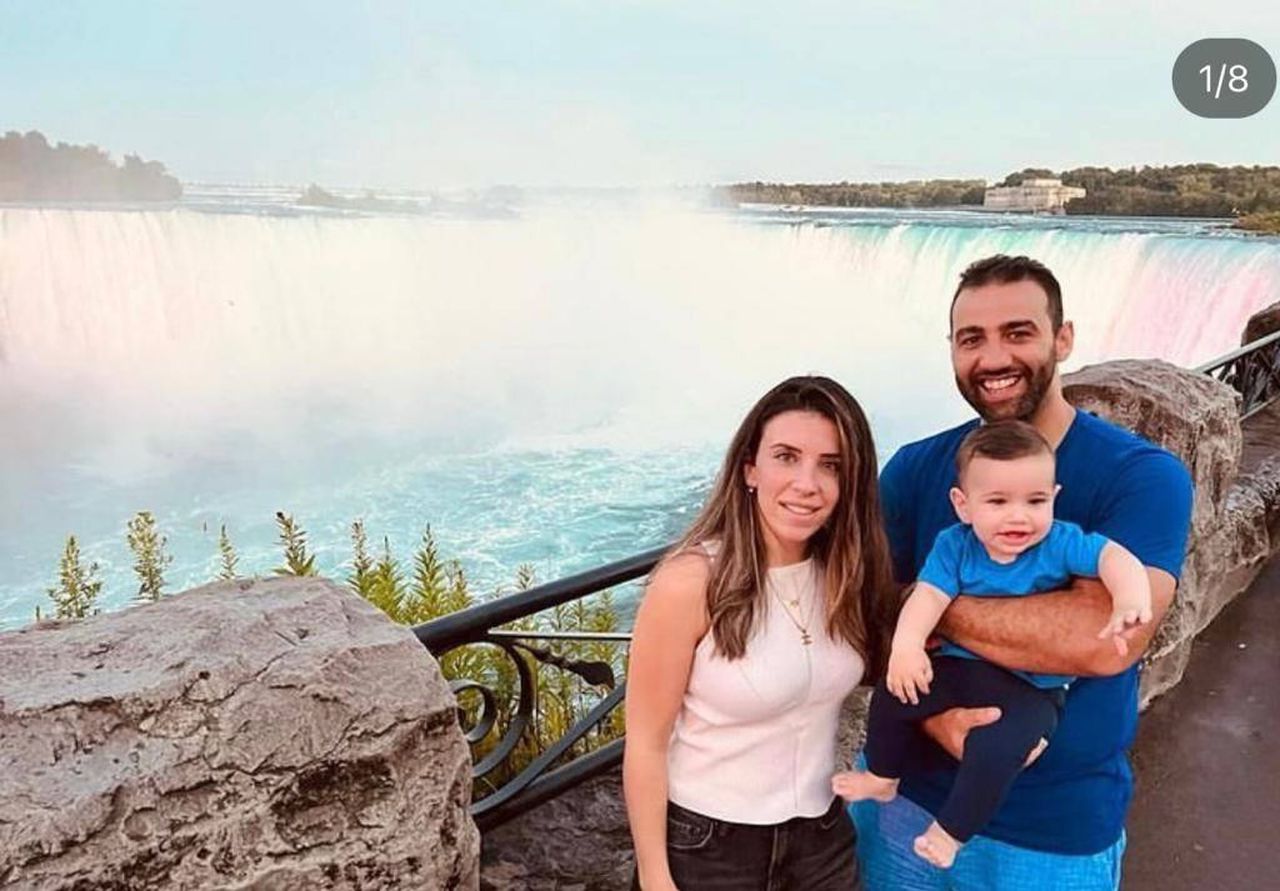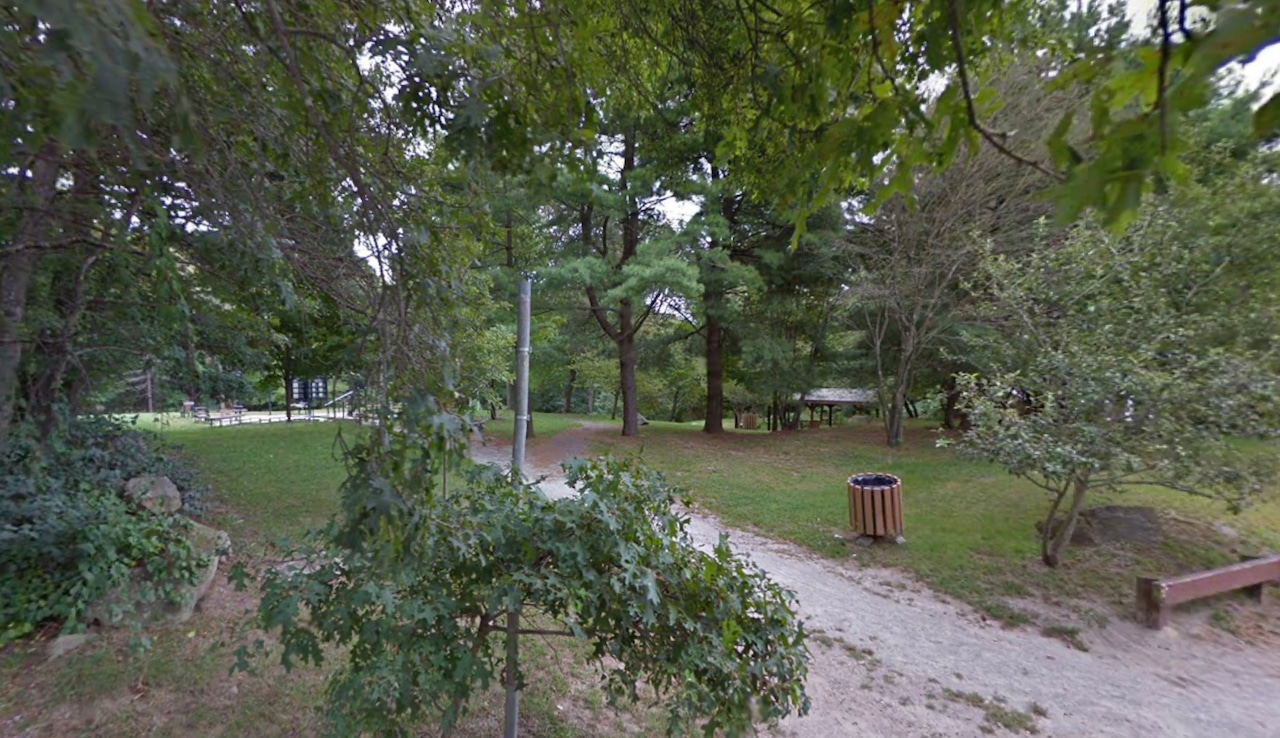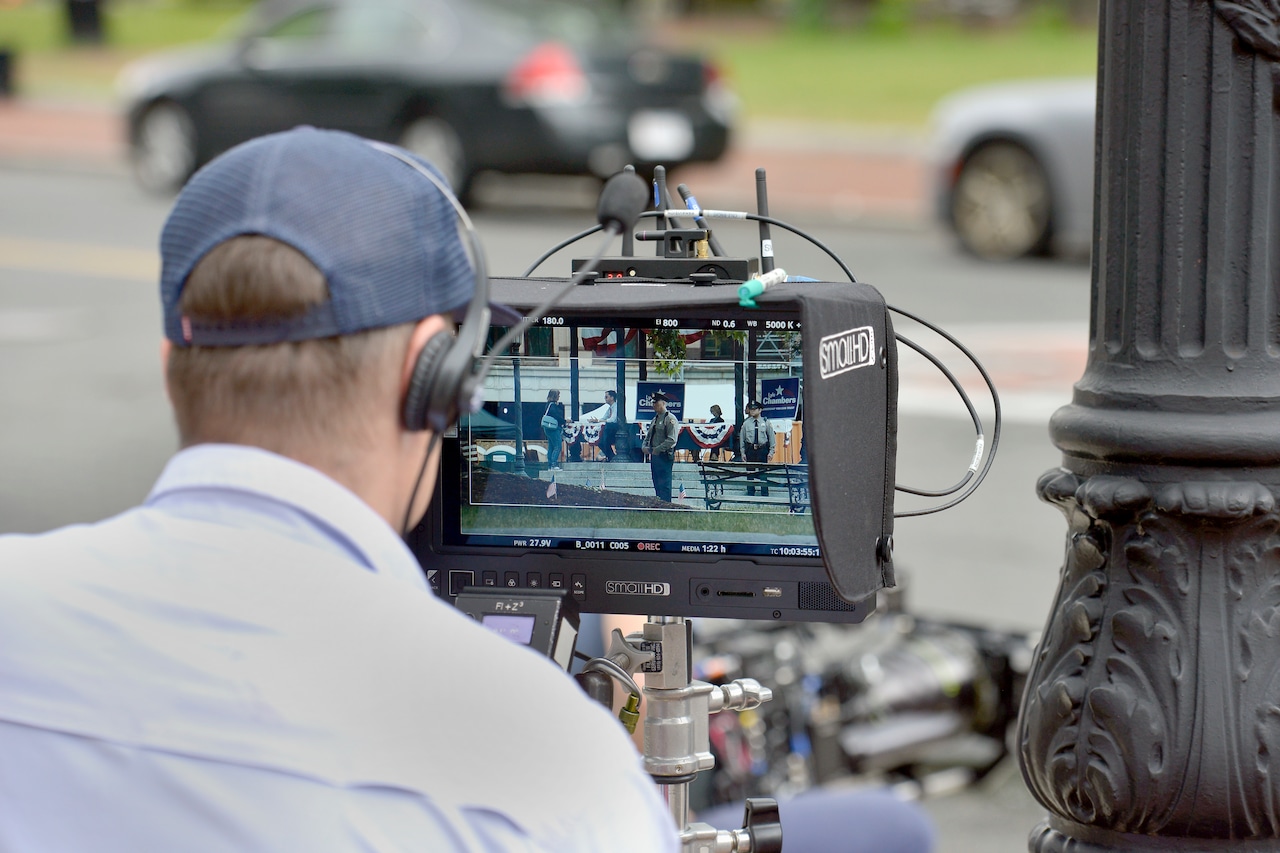
A family from Medway that had been trapped in Gaza since the beginning of the Israel-Hamas war has now returned home to Massachusetts.
Abood Okal, Wafaa Abuzayda and their 1-year-old son Yousef were visiting relatives in Gaza on Oct. 7, when Hamas made a surprise attack on Israel, killing more than 1,000 people and igniting a conflict that escalated to war.
Okal, Abuzayda and their son, all American citizens endured nearly a month trapped in the territory waiting for word they could leave via a crossing between Gaza and Egypt in the Gaza community of Rafah.
After enduring the dangers of airstrikes and an Israeli ground invasion, sheltering with 40 people in one single-family home, and meager supplies — especially drinking water — the family is now back at its Medway home, according to family friend Sammy Nabulsi.
They arrived at Logan International Airport on Monday, he said.
“The Okal Family continues to be incredibly thankful for their family and friends around the world who spoke up on their behalf, the Medway community, the media for sharing their plight and the plight of the hundreds of other Americans trapped in Gaza, their elected officials who fought hard for their return, and the State Department for providing them with safe departure,” Nabulsi wrote.
The family had initially not been allowed to cross at Rafah despite multiple attempts, but on Nov. 2 they were finally allowed to leave. They made their way to Cairo and traveled to the U.S. from there.
More than 10,000 people in Gaza have died since the start of the war, including about 4,100 children, according to Palestinian officials. There have been about 1,400 Israeli casualties, most of which took place during the Oct. 7 attack by Hamas.
A border crossing between Gaza and Egypt at Rafah, the community in which Okal and Abuzayda were staying, opened to let people out for the first time on Wednesday.
While foreign nationals from several different countries were allowed out, Americans — including Okal and Abuzayda — were initially not.
“It should be soon,” Okal wrote by text message Wednesday.
The State Department told Okal to keep an eye out for further instructions on the day and timing of his family’s departure from Gaza.
Conditions had been terrifying for the family, Okal had said, and supplies, particularly drinking water, had been difficult to obtain.
Okal was staying in a house with 40 people, among them 10 direct relatives who are also American citizens. He, his wife and son shared a blanket to sleep on the floor. Okal had to stand on line for hours to get a single gallon of water to share among the 40 people for a single day, he said.
“Drinking water remains to be the biggest issue where we try to find it every day on a day-to-day basis — one gallon for the house,” Okal wrote earlier in the week.
Escalating airstrikes had been terrifying for the family, and they feared being hit despite sheltering in their home.
“Last night was rough with shelling and airstrikes all night in east Rafah and Khan Younis,” Okal wrote Wednesday.
A family from Plymouth
Another Massachusetts family, from Plymouth, also has escaped Gaza, according to a relative.
Hazem and Sanaa Shafai, and their three children, Seera, 12, Yumna, 10, and Jasser, 2, crossed from the territory of Gaza into Egypt shortly before 1 p.m. Eastern time on Monday, according to Hani Shafai, Hazem’s brother.
“They just made it across and into the Egyptian side of the border,” Hani Shafai said Monday. “They are waiting for travel documents to be allowed to travel to Cairo.”
Shafai praised the U.S. State Department, the family’s congressional delegation in Massachusetts, and South Dakota — where Hani Shafai lives.
Hazem and Sanaa Shafai were given a chance to leave on Nov. 2, but refused because their three children were not on a list of approved travelers, Hani Shafai previously told MassLive.
“That has been rectified and they allowed all of them to cross,” Hani Shafai said Monday, adding that they were among 300 families crossing the border that day.
Jasser, their youngest child at age 2, has been ill, and is still not feeling well, he added.
Two other family members, the father and the oldest sibling, also got the sickness, but are starting to feel better, he said. The oldest daughter, Seera, also has braces that became loose more than a week ago.
“She’s struggling a little bit with that and in pain,” Hani Shafai said.
Shafai has nine other family members in Gaza, whom he is also trying to help escape. Some are U.S. citizens and some are not, he said.
While on the phone with family members, Shafai said he could hear the effects of the war.
“You could hear explosions and the wife was yelling at the husband to close the door and what have you,” he said.
Hani Shafai said that he appreciated the efforts of U.S. officials who were able to help his family to leave.
“The efforts that were put forward by the many people who helped reflect the true face of the American people that is a great country that is really uniting together to bring these people to safety,” he said. “I hope that the rest of my family members in the future can be afforded that, even though they are not U.S. citizens, to have the ability to have a safer place and hopefully some of them will be able to come to the United States.






